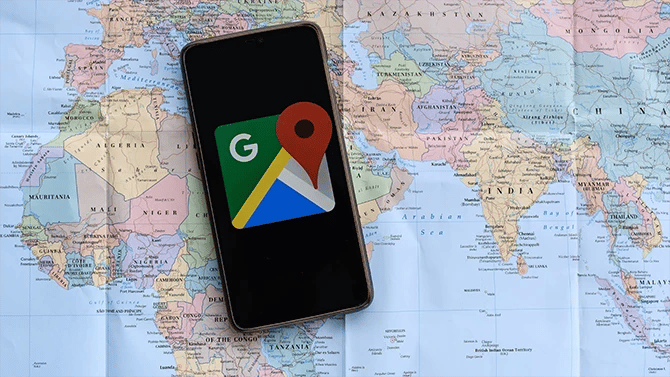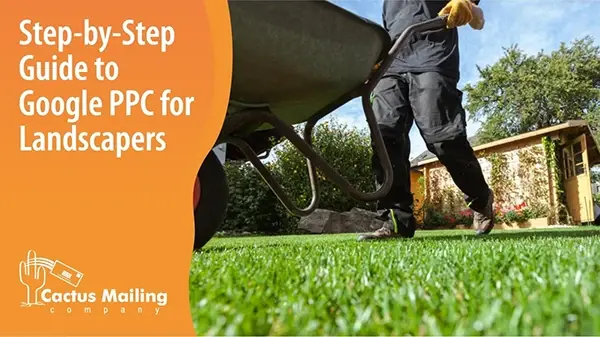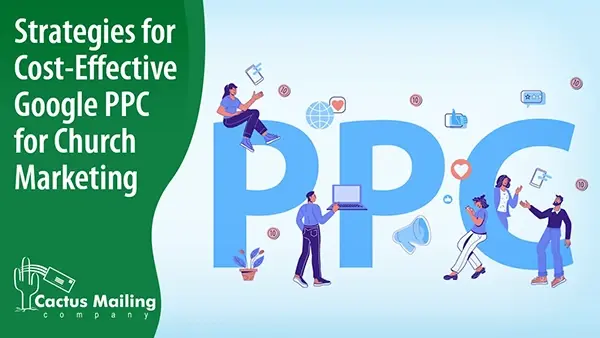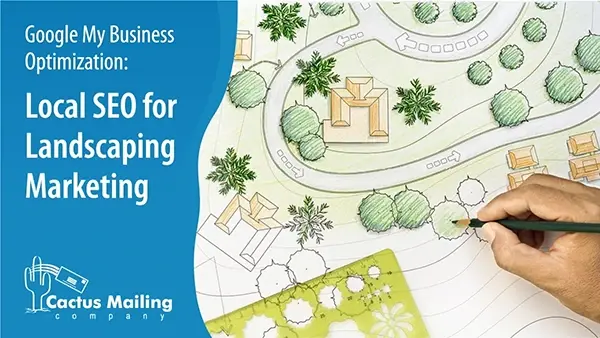We Are Here to Help!
What to Expect from Us:
No Pressure, Just Service!
Get no obligation pricing details and strategies that will work for your business.
Google Pay-Per-Click (PPC) advertising is an effective and efficient marketing strategy for landscapers who are looking to expand their online presence and attract potential clients. By taking advantage of Google PPC, landscapers can ensure that they are visible to potential clients when they are actively searching for landscaping services.
One of the key advantages of Google PPC advertising is that it allows landscapers to reach their desired audience in a highly targeted manner. Another advantage is the ability to track and measure the campaign’s success through tools like Google Analytics.
If you want to start using Google PPC for landscaping marketing, here's a step-by-step guide to help landscapers create an effective Google PPC campaign:
Step 1: Define your objectives
Set clear goals for your Google ads campaign. Clearly defined goals will guide your marketing strategy to cater to the specific goals and growth strategies of your landscaping business.

Some objectives for landscaping PPC:
- Increase Website Visits: Drive more traffic to your landscaping company's website to showcase services, portfolio, and customer testimonials.
- Brand Awareness: Increase brand visibility and recognition among the local audience, making the landscaping company a familiar name in the community.
- Generate Leads: Encourage visitors to fill out contact forms or request quotes for landscaping services, capturing potential customer information for follow-up.
- Promote Seasonal Services: Highlight specific seasonal services such as spring garden cleanup, fall leaf removal, or winter snow removal to attract clients during specific times of the year.
- Boost Online Sales: If you sell products like plants, gardening tools, or landscaping materials online, use PPC ads to drive sales directly from the website.
- Target Specific Services: Focus on promoting specific services such as landscape design, lawn maintenance, hardscape construction, or irrigation system installation to attract clients looking for specialized expertise.
- Expand Service Area: Reach clients in neighboring towns or areas where your landscaping company is looking to expand its services, increasing the customer base geographically.
- Showcase Customer Testimonials: Use PPC ads to promote customer testimonials and success stories, building trust and credibility among potential clients.
- Mobile App Downloads: If you have a mobile app for services or gardening tips, promote app downloads to engage customers on a different platform.
- Event Promotion: Advertise workshops, gardening classes, or community events organized by the landscaping company, attracting local residents interested in landscaping and gardening.
Step 2: Research Keywords
Research relevant keywords related to landscaping services. Use Google’s Keyword Planner to find high-quality, localized keywords that potential customers might use in their searches. Some relevant keywords for Google PPC campaigns for landscapers:
- Landscaping Services
- Landscape Design
- Patio Design
- Lawn Maintenance
- Lawn Mowing Service
- Lawn Care
- Lawn Repair
- Tree and Shrub Care
- Garden Clean Up
- Garden Renovation
- Commercial Landscaping Services
- Residential Landscaping Services
If you offer specific services, you can also include them in your Google ads. You should also consider adding location-specific keywords if your lawn care business serves a specific area. For example:
- [City Name] Landscaping Services
- Landscapers in [City Name]
- Best Landscape Designers near me

Remember to check the keyword variations that Google Ads provides automatically, including singular and plural forms, synonyms, and different phrasings to capture a broader range of user queries. Refine your list based on performance and changes in customer search behavior. Regularly update and conduct keyword research to remain relevant and maintain rankings.
Step 3: Set Up Google Ads Account
Setting up a Google Ads account is a straightforward process. Here's how you can start:
Sign up for a Google Ads account
- Go to the Google Ads website (ads.google.com) and click on "Start Now."
Tip: When you sign-up, check the $500 ad credit for a $500 spend. - Sign in with your Google account or create a new account if you don’t have one.
Enter Your Business Details
- Provide your business name and website URL.
- Select the main goal for your advertising campaign.
Set Your Target Audience
- Specify your target locations where you want your ads to be shown.
- Define your audience based on demographics, interests, and online behavior to reach the right customers.
Step 4: Create Compelling Ad Copies
Grab the attention of potential customers and convince them to engage with your landscaping services. Here's a short guide on how to craft persuasive and effective ad copies:
- Use Compelling Language
- Highlight Unique Selling Points
- Incorporate Relevant Keywords
- Highlight Customer Benefits
- End with a Persuasive Call-to-Action (CTA)
By integrating these elements into your ad copies, you can create compelling and engaging advertisements that resonate with potential customers, encouraging them to click and learn more about your landscaping services.
Step 5: Design a Landing Page
After clicking on your Google ad, users will be directed to your website, and creating an effective landing page is pivotal to the success of your PPC campaign. When users click on your Google ad, they land on this page, making it the first point of direct interaction with your potential customers.
Create a landing page that matches your ad's message. Optimize images, minimize unnecessary scripts, and utilize efficient coding practices to ensure your landing page loads quickly. It should also work well on mobile devices and show your services clearly.

Include a clear action like "Get a Quote" and a simple way for users to contact you. If using a form, ask for essential details such as name, email, and service requirements. Minimize form fields to encourage more submissions while ensuring you collect sufficient information to follow up effectively.
By following these, your landing page becomes an appealing entry point for potential customers. It improves user experience and increases the likelihood of turning clicks into valuable leads, ultimately boosting the effectiveness of your landscaping PPC campaign.
Step 6: Create Ad Groups
Organize your keywords into relevant ad groups. For instance, group keywords related to lawn care together, and separate them from keywords related to garden design. This helps you create targeted ad copies for specific services.
Google Ads assigns a Quality Score to your ads based on factors like ad relevance, click-through rate (CTR), and landing page experience. A well-organized ad group with relevant keywords and ad copies contributes to a higher Quality Score. A higher Quality Score not only leads to lower costs per click but also ensures your ads are displayed more prominently in search results, maximizing their visibility.
By monitoring the effectiveness of each ad group, you can make data-driven decisions, optimizing your campaign for better results over time.
Step 7: Set Bidding and Budget
Your bidding strategy and budget determine how much you're willing to pay for PPC ad clicks and conversions. Setting the right strategy will allow you to maximize your advertising budget effectively. For an in-depth explanation, check out Google's article about paid ads. To simplify, here's what you need to do:
Choose Your Bidding Strategy:
- Manual Bidding: You have full control over how much you're willing to pay for clicks or conversions. This is ideal if you are experienced in managing bid adjustments based on different keywords or ad groups.
- Automated Bidding: Rely on machine learning to automatically adjust your bids in real-time to maximize conversions or achieve a specific ROI. You can choose from automated bidding strategies, like Target ROAS (Return on Ad Spend) or Maximize Conversions. This can save time and often optimize bids more effectively, especially in large and complex campaigns.
- Target CPA Bidding: Google Ads automatically adjusts your paid ads bids to help you achieve your desired conversion goals at the target cost per acquisition (CPA) you set. Choose this strategy if your primary goal is to increase conversions while controlling costs.
Set a Daily Budget:
Determine the maximum amount you're willing to spend on your PPC campaign each day. Start with a budget that feels right for your business and adjust it as you monitor campaign performance. This Google AdWords budget should align with your overall advertising objectives and financial capabilities.
Planning your marketing budget? Don't overlook the power of direct mail postcards.
Step 8: Write Ad Extensions
Ad extensions are powerful tools in Google Ads that allow you to provide additional information to potential customers, making your ads more compelling and engaging. Effective ad extensions can significantly improve your click-through rates and drive more qualified traffic to your website or physical location.

Here’s how you can write different types of ad extensions to maximize the impact of your advertising campaign:
- Site Link Extensions
- Site link extensions enable you to direct users to specific pages on your website, showcasing various services or products. When writing site link extensions, focus on being concise and descriptive. Highlight key services, special offers, or popular products. Make sure each site link is relevant to the ad group it's associated with.
- Callout Extensions
- Callout extensions allow you to emphasize additional services or unique selling points in a few words. Use callout extensions to highlight benefits, awards, guarantees, or any distinctive features that set your landscaping services apart. Keep these short and impactful to capture attention effectively.
- Location Extensions
- Location extensions display your business address and phone number, making it easier for potential customers to find and contact you. Ensure your business information is accurate and matches your website and other online listings. Location extensions are particularly essential for local businesses, as they facilitate visits to your physical location.
Tips for Writing Effective Ad Extensions:
- Be Clear and Specific: Clearly communicate what sets your services apart. Use specific language to convey unique offerings or limited-time promotions.
- Create a Sense of Urgency: Encourage users to take immediate action. Use phrases like “Limited Time Offer” or “Book Now” to create urgency and prompt engagement.
- Match Extensions to Ad Content: Ensure that your ad extensions align with the message and intent of your ad. Consistency across ad components enhances user experience.
- Test and Rotate Extensions: Regularly test different extensions to see which ones perform best. Rotate them to prevent ad fatigue and keep your messaging fresh.
By crafting compelling ad extensions, you enhance the overall appeal of your ads, providing users with valuable information and encouraging them to engage with your landscaping services.
For a more detail explanation of website design, check out our article about must-haves for every website for landscaping marketing.
Step 9: Launch and Monitor
Launch your campaign and closely monitor its performance. By analyzing data such as click-through rates, conversions, and cost-per-click, you can gain valuable insights into the performance of Google local service ads and make data-driven decisions to optimize their campaigns. Use the data to identify successful keywords and ads while optimizing or pausing underperforming ones. This level of transparency and control allows for continuous improvement, ensuring that the ad spend is allocated wisely and yields the best possible results.
Step 10: Continuous Optimization
Regularly review your campaign performance. Test different ad copies and keywords to see what resonates best with your audience. Adjust your bids, budgets, and targeting based on real-time data. Continuously refine your PPC strategy to maximize your ROI.
Create a comprehensive and cohesive digital advertising approach that covers various touchpoints. Google PPC advertising complements other digital marketing strategies, such as local search engine optimization (local SEO), social media marketing and content marketing.
You can use a Facebook ad to raise brand awareness while simultaneously running PPC ads on Google search to capture those users actively looking for a lawn care business. Integrated marketing solutions ensure better inbound marketing responses from a potential client.

Conclusion
Landscapers have the opportunity to distinguish their brand in a competitive market and engage with potential clients meaningfully through landscape marketing.
Utilizing Google Pay-Per-Click (PPC) is an excellent strategy for driving targeted traffic and generating valuable leads for landscaping services. With Google PPC advertising, landscapers can efficiently reach potential customers actively searching for a landscaping business online. By strategically targeting specific audiences, tracking performance, competing for top search positions, and integrating with other digital marketing services, landscapers can harness the power of PPC to achieve significant results and grow their business.
Unlike organic local SEO, which takes time to produce results, PPC offers immediate online visibility for a landscaper. This instant presence is particularly advantageous for new or smaller landscaping businesses lacking a robust online footprint. By investing in PPC advertising, landscaping businesses can level the playing field, compete effectively with established counterparts, and capture the attention of a potential customer who might have otherwise missed them.
Strategies such as Google reviews, landscaping ads, lawn care marketing, social media marketing, and optimizing Google My Business further enhance the impact of your digital marketing efforts.
If you're looking at other strategies, you might also want to consider direct mail. Our postcards have helped various businesses get leads, boost awareness, and grow revenue. Let us help you create a landscaping marketing postcard design that can achieve your marketing goals!

 Cactus Mail Team: Mar 20, 2024
Cactus Mail Team: Mar 20, 2024



